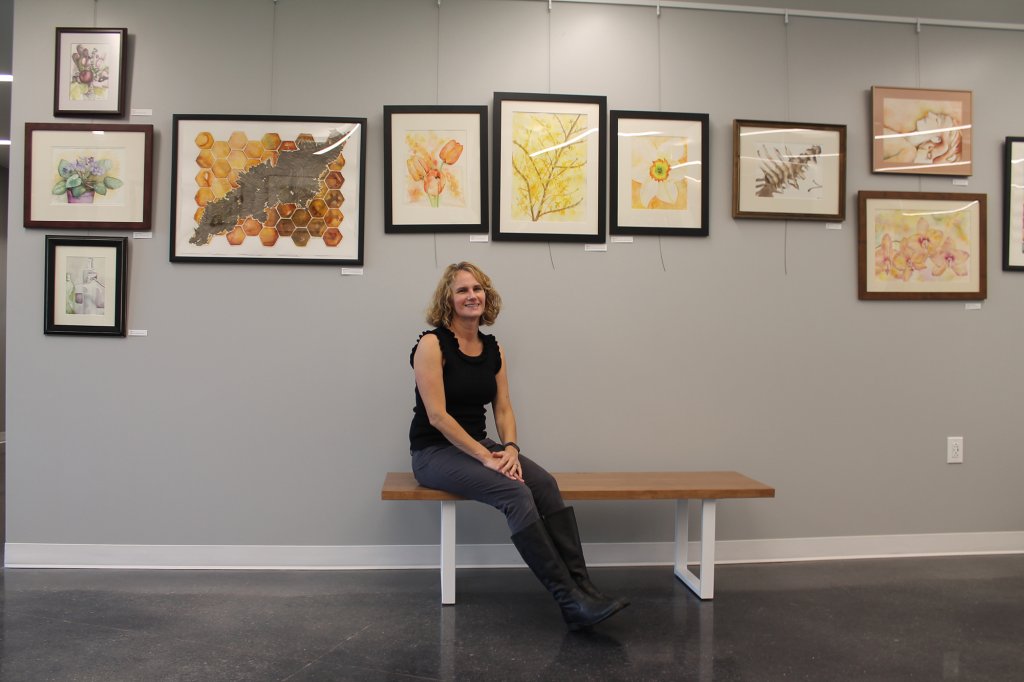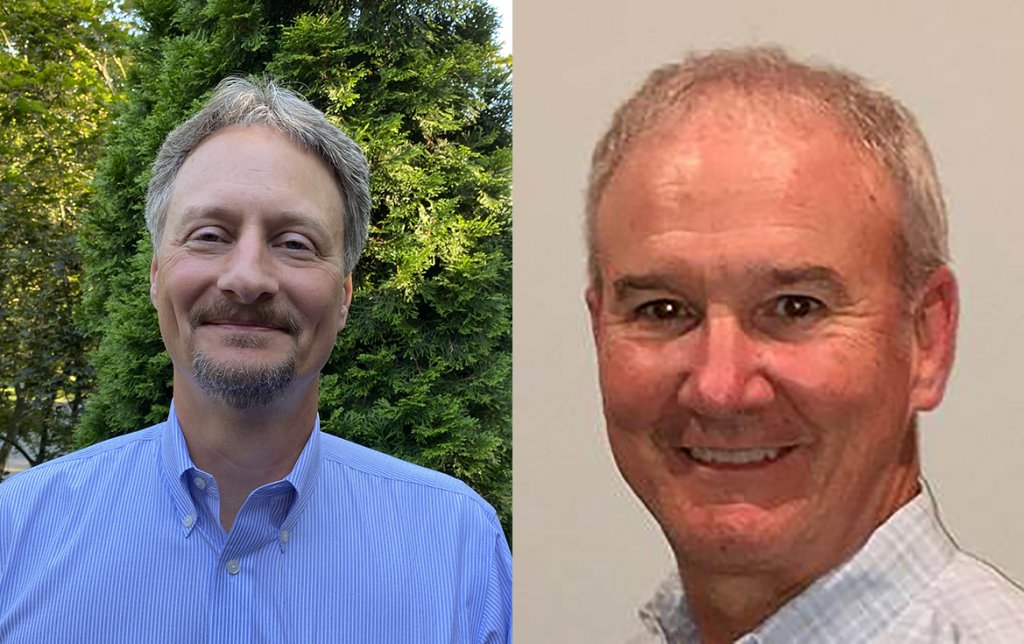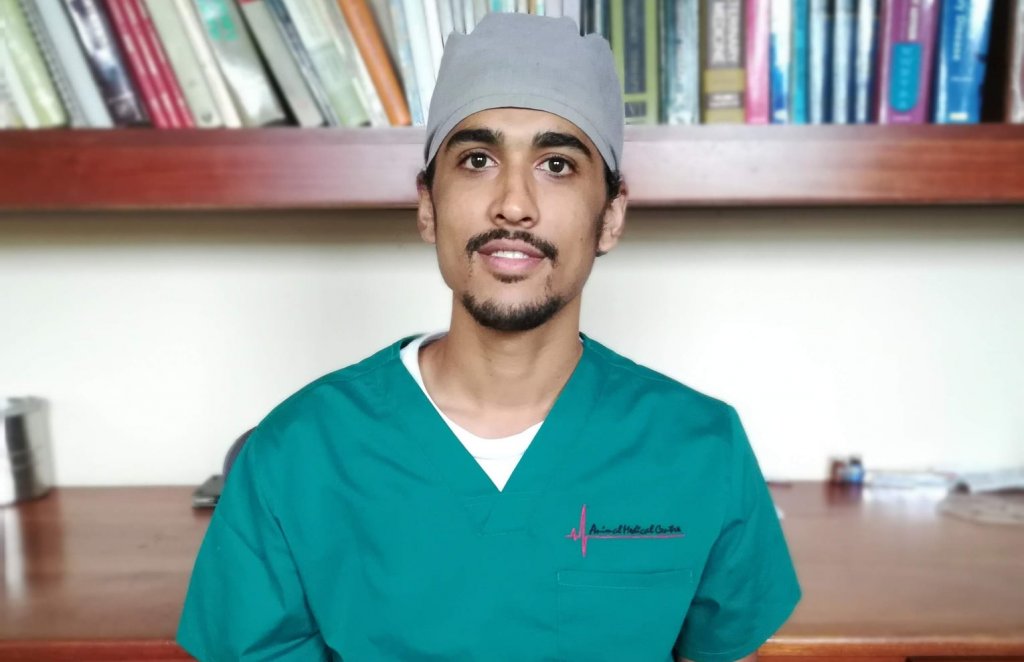

Maria Witmer-Rich ’96: Watercolor art is chemist’s counterpoint
Maria Witmer-Rich '96 connects art and science and is equally at home in the chemistry lab as she is in the painting studio.
When applying for jobs and graduate programs, experience is key. Through Goshen College’s chemistry program, you’ll get hands-on experience in small classes with top-notch science faculty in a values-based learning environment. For example, even in your first semester, you’ll have access to scientific instrumentation that at large universities is normally restricted to upper-level or graduate students.
Goshen College has a long-standing relationship with the sciences and faith. Chemistry majors have an opportunity to participate in undergraduate research, often working side-by-side with professors in their labs. You’ll also have opportunities to work on campus in collaboration with chemistry department faculty who maintain strong ties with researchers at universities across the United States in related areas.
Classes at Goshen College are taught by professors who have a Ph.D. in their field, so students are guaranteed to get the most up-to-date information in the classroom. In addition, our professors are dedicated mentors; they work closely with students both in and out of the classroom to ensure that each one has the opportunity to explore their academic interests.
At Goshen College, learners will get a well-rounded education that will set them up for success after graduation. Chemistry is offered as both a major and minor, and can be tailored with a variety of courses to fit specific interests, like inorganic chemistry, chemical processes, chemical sciences, atmospheric chemistry, environmental science, laboratory technicians, chemical engineers, materials science, research careers, teaching, medicine, roles with pharmaceutical companies and related industries.
Students interested in studying chemistry at Goshen College will be among students who score, on average, in the 75th percentile nationally on the standardized exit exam. About 90 percent of pre-med graduates are accepted into medical schools, which is twice the national acceptance rate of other chemistry schools. Likewise, 80 percent of chemistry and biochemistry graduates are accepted into their graduate program, far above the national average.
In this program, we’ll take your natural curiosity and help you develop the skills you’ll need to be successful in any industry, such as med school, graduate school, chemical companies, government agencies, and beyond.
Chemistry is one of the most versatile and important sciences, and chemistry majors and minors have a wide variety of career paths to choose from; they often receive job offers before they even complete their bachelor’s degree!


Maria Witmer-Rich '96 connects art and science and is equally at home in the chemistry lab as she is in the painting studio.


Two 1984 Goshen College alumni – Dr. Robert Lerch and Mark Wittrig – played important roles in the development of the Pfizer-BioNTech vaccine against COVID-19.


Philip DeShield ’09 a veterinarian in Belize, has used his skills all over the world, including marine conservation medicine in Mexico, manatee field research and collaring and tracking jaguars.
of GC pre-med graduates are accepted into medical school (twice the national rate)
Ranking in the percentage of graduates going on to earn doctorates among all Indiana institutions
GC chemistry seniors score in the top 25 percentile on the national Major Field Test in Chemistry
Learn more about Goshen College's exceptional academic outcomes and national rankings.
Sarah Lerch, a 2012 graduate from Spring Valley, New York, studied chemistry and biology. While at Goshen College, she had the opportunity to study alongside graduate students and professors in lab settings.
Sara's storyUlises Martinez, a 2004 chemistry and physics graduate, developed a clean energy catalyst that powers carbon-neutral vehicles.
Ulises' storyRushika works at Colorado State University researching how dengue virus interacts with its human host and mosquito vector to replicate and spread.
Rushika's storyDale discovered and developed new drugs for HIV and hepatitis C virus therapy. Currently he directs a program at AbbVie for the discovery of new drugs for neglected tropical diseases, tuberculosis and malaria.
Dale's storyDoug Schirch is not only passionate about chemistry: he has also led Study-Service Term in Nicaragua and serves as an adviser to the Social Reform and Pax clubs.
Doug's storyJoel Yoder '22, a molecular biology/biochemistry and chemistry double major from Elkhart, Indiana, has always had an interest in medical chemistry. He got his chance to work in the field with an internship at AbbVie.
Joel's story




